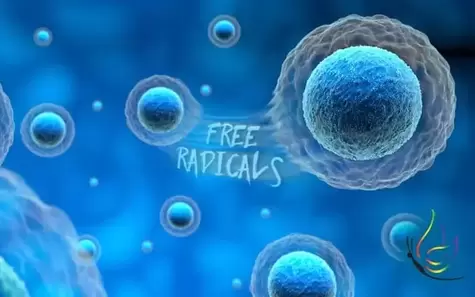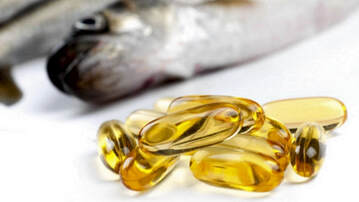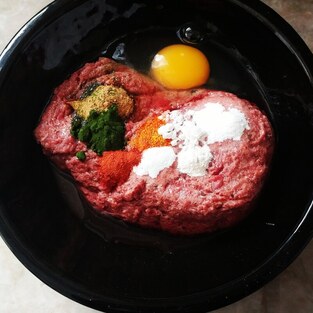|
What are free radicals and why should we learn about them? Free radicals are important to understand as they pertain to our pets health and well being (and ours too actually), and it actually determines how well our pets age! So, yes, that important! In the technical term, a free radical is an atom or group of atoms that contains at least one unpaired electron. Electrons are particles that are negatively charged that typically occur in pairs, thus forming a chemically stable arrangement. If an electron is not paired, another molecule or atom can easily bond with it, causing a chemical reaction. Free radicals are very unstable, and can create dramatic changes in the body, they can cause a lot of oxidative damage, however, each free radical can only exist for a tiny fraction of a second, it’s really the damage that it leaves behind that can be irreversible, particularly damage to heart muscle cells, nerve and certain immune system sensory cells. Are all free radicals bad? Not all free radicals are bad, free radicals are typically present in the body in small numbers, biochemical processes naturally lead to the formation of free radicals, and under normal and healthy circumstances, the body can and does keep them in check. There are even free radicals the immune system makes (which is why we must always keep the immune system strong), that destroys viruses and bacteria. There are other free radicals that are involved in producing hormones and activating enzymes, we even need free radicals to produce energy and various substances that the body requires. When do free radicals become bad? Free radicals become a detriment to health when there is excessive free radical formation, this is where damage to tissues and cells can occur. It can also become a chain reaction, when the formation of a large number of free radicals occur it then stimulates the formation of even more free radicals, leading to even more damage. The presence of dangerously high number of free radicals in the body can even alter the way in which cells code genetic material. Changes in protein structure can occur as a result of error in protein synthesis and that is very bad, as the immune system can see this error as a foreign substance and try to destroy it. The formation of mutated proteins can eventually damage the immune system and can lead to cancers such as leukemia, as well we other diseases. In addition to damaging genetic material, protective cell membranes can be destroyed by free radical damage, and can upset the calcium levels in the body. There are many different factors that can lead to free radical damage in the body, some that are not always in our control, such as the environment and the polluted air we breathe (think chem trails, pesticides sprayed, cell phone towers), and some that are such as diet and stress. When the body obtains nutrients from the diet, it uses oxygen to create energy, it’s a process called oxidation. Oxygen molecules containing unpaired electrons are then released, and if they are released in too high numbers it can cause damage to the body. Oxidation occurs more readily in fat molecules than protein or carbohydrates. This is why it is extremely important to only feed quality food and supplements to our pets! I’m an extreme advocate for quality supplements as I have found some pet guardians, even though they feed a quality diet, supplement using poor quality supplements, which can actually undo what they are trying to do with the diet, for example, most omega-3 supplements on the market (like 99%) are already rancid before the bottle is even opened! When you offer rancid oils and supplements, it causes a lot of free radical damage in the body in a concentrated way, so you are then spending extra money on something that actually does the opposite of what you are trying to do! Do free radicals accelerate aging?
Yes, excess free radicals do accelerate aging when the body produces more free radicals over time than scavengers, and that resulting imbalance contributes to the aging process. Which as we all know, our beloved pets don’t need help with that, they already age fast enough- that is why we take a dogs age and times it by 7. How do we effectively deal with excess free radical damage in the body, or slow down aging? Substances known as antioxidants neutralize free radicals by binding to their free electrons. Of course, not all antioxidants are created equal, and some have more specific purposes than others, for example, the antioxidant Coenzyme CoQ10 is especially beneficial for the heart. The antioxidant lutein is especially beneficial for the eyes (ocular health). There are water soluble antioxidants and fat soluble antioxidants. One of the most powerful antioxidant is called glutathione, which, if the body is overall healthy, it can make this antioxidant effectively, which the body actually needs to not only destroy free radicals but to detoxify and protect the body as well. To keep things simple, feed a fresh whole food diet, not kibble, as kibble goes rancid very quickly (before the bag is even opened unfortunately), add quality supplements yourself where you can control the quality of vitamins (also antioxidants), and of course, good quality fats, my personal favorite way of adding more antioxidants to my pets diet is by adding a quality greens powder to their food and a quality omega-3 supplement.
0 Comments
Leave a Reply. |
AuthorLucy is an avid pet mom; with dogs, cats, goats and horses to keep her busy! All of her pet 'kids' are fed a species appropriate diet with proper supplementation so she can watch them thrive. Her expertise and experience lie in nutraceutical supplementation and is a health advocate for proper diet and nutrition. Her other passions in life are schutzhund and equestrian riding. Archives
July 2024
Categories |





 RSS Feed
RSS Feed